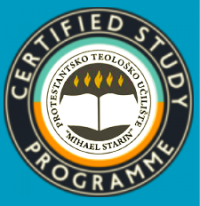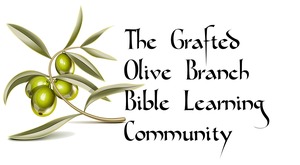
SPIRITUAL BALANCE PART ONE - SPIRITUAL ORDER
There are two video programmes one marked PRESENTATION and the other marked TABLE TALK. The PRESENTATION is in the form of a lecture, the one marked TALE TALK is unpacking and discussing the topic.
PRSENTATION
TABLE TALK
Below, on the right hand side is a CONTACT BOX where you can write any questions that you have concerning the topic. Remember no questions is too simple.
On the left side under the the study notes is the POWERPOINT PRESENTATION for the topic. You can download this and keep it and use it for your own teaching or study.
THE SACRED CALENDAR
The followers of Jesus have always, throughout history, observed seasons and sacred special days. The Gospels are full of the Lord Jesus following the God given feasts and festivals of the Jewish faith.
It is only in the last 200 years that Christians have abandoned so much of the sacred calendar of our faith. In this session we will discuss this subject.
1.0 Most countries where Christians live today have two calendars, one Christian and one made up of national holidays.
1.1 The National Calendar is often the one that is given priority.
Examples:
1.1.1 Independence days
1.1.2 Non Christian Religious Holidays
1.1.3 Pagan Holidays
2.0 The Children of Israel lived for 400 years in Egypt as a minority group.
2.1 They were forced to live under the Pagan calendar of the Egyptians.
2.2 The year consisted of three seasons of 120 days each.
2.2.1 The gods were believed to be present in nature and so positive and negative natural forces were attributed to the gods.
2.2.2 The belief was that the gods had bodies made of gold, silver and precious stones.
2.3 There were holiday seasons where there was a celebration of the Egyptian gods which consisted in parades, dances, orgies and abandonment. A few examples of the many:
2.3.1 Osiris - god of death and resurrection who rules the underworld and enlivens vegetation, the sun god, and deceased souls
2.3.2 Horus - A major god, usually shown as a falcon or as a human child, linked with the sky, the sun, kingship, protection, and healing.
2.3.3 Hathor - One of the most important goddesses, linked with the sky, the sun, sexuality and motherhood, music and dance, foreign lands and goods, and the afterlife.
2.3.4 Isis - Wife of Osiris and mother of Horus, linked with funeral rites, motherhood, protection, and magic.
3.0 When the Hebrews rebelled against Moses with the Golden Calf their immorality was an expression they knew well from Egyptian paganism.
The Bull was often seen as a manifestation of various Egyptian gods.
3.1 The Calendar gave a context for their sin. Ex 32:1–6.
When the people saw how long it was taking Moses to come back down the mountain, they gathered around Aaron. “Come on,” they said, “make us some gods who can lead us. We don’t know what happened to this fellow Moses, who brought us here from the land of Egypt.”
2 So Aaron said, “Take the gold rings from the ears of your wives and sons and daughters, and bring them to me.”
3 All the people took the gold rings from their ears and brought them to Aaron. 4 Then Aaron took the gold, melted it down, and molded it into the shape of a calf. When the people saw it, they exclaimed, O Israel, these are the gods who brought you out of the land of Egypt!”
5 Aaron saw how excited the people were, so he built an altar in front of the calf. Then he announced, “Tomorrow will be a festival to the Lord!”
6 The people got up early the next morning to sacrifice burnt offerings and peace offerings. After this, they celebrated with feasting and drinking, and they indulged in pagan revelry.
3.2 The Children of Israel were able to accept the blessings of God but not the "Disciplines" of faith. They saw the miracles and the deliverance from Pharoah but when Moses was absent they reached back to their Pagan spirituality. Spiritual maturity demands a faith built on discipline not feelings.
4.1 There are many examples in today's world that are similar:
4.1.1 The Hindu Festival of Holi - celebrated with feasting and drinking, and they indulged in pagan revelry
4.1.2 The Roman Catholic Mardi Gras - celebrated with feasting and drinking, and they indulged in pagan revelry.
4.1.2 England's Christmas - celebrated with feasting and drinking, and they indulged in pagan revelry.
5.0 A Calendar creates a context for life.
5.0.1 It can hold our spirituality accountable.
5.0.2 It gives focus to spiritual and theological events.
6.0 One of the first steps of God delivering the Law to the Children of Israel was to provide a corrective calendar for them.
6.1 The Hebrew Calendar
6.1.1 When the Hebrews gathered together at their different festivals there was over the year a balance between Rejoicing, Repentance, Reflection and Meditation.
6.2 Sabbath
6.3 Passover and Leaven Bread
6.4 Festival of First Fruits
6.5 Pentecost
6.6 Feast Of Trumpets
6.7 Day of Atonement
6.8 Feast of Tabernacles
7.0 New Moons and Special recurring Holy Days.
8.0 The Christian Calendar
8.1 Rejoicing, Repentance, Reflection and Meditation.
8.1.1 Ash Wednesday And Lent
8.1.2 Holy Week (Easter)
8.1.3 Pentecost
8.1.4 All Saints Day
8.1.5 Advent/Christmas
8.1.6 Epiphany
8.1.7 Added to these days there were daily and weekly spiritual disciplines.
8.1.7.1 Daily prayer three times each day
8.1.7.2 A Sabbath day exclusively for rest reflection and worship.
8.1.7.3 Wednesday and Friday each week for Fasting.
8.1.7.4 Regular times for Agape Meal which was a Feast.
9.0 The Spiritual Calendar Gives Rhythm To Our Spirituality
9.1 Rejoicing, Repentance, Reflection and Meditation.
A POWERPOINT PRESENTATION TO ASSIST WITH LEARNING AND TEACHING
PLEASE FILL OUT THE FORM AND ANSWER THE QUESTIONS
#bob hitching
#bobhitching

